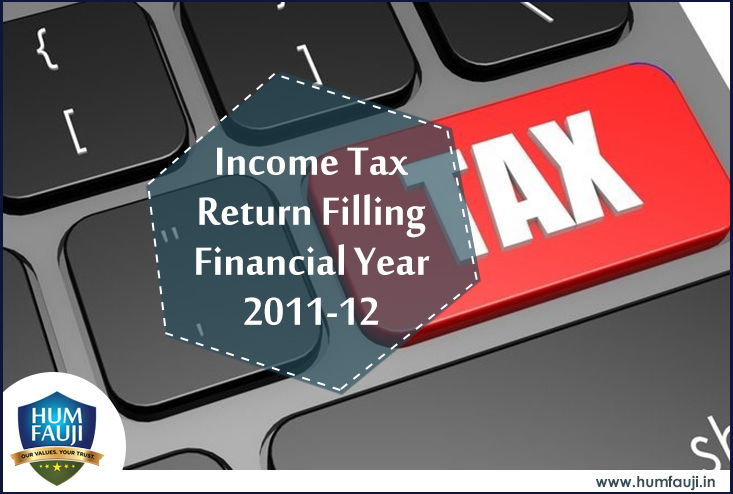For most of the faujis, the word HUF itself is something difficult to decode. But if you consult a Chartered Accountant (CA) and ask him about tax saving, he might ask you if you’ve made a ‘HUF’?
So, what is this HUF that CAs talk about and why so?
HUF is an abbreviation for Hindu Undivided Family. And, you may not know but you either already have a HUF or are a part of it if you are a Hindu, Jain, Buddhist, or a Sikh (collectively referred to as a Hindu).
So, what is a HUF?
The genesis of a HUF dates back to the olden days when there were big joint families, everybody owned everything that was there in the family – farms, shops, house, all money coming into the family – just because everybody stayed, worked, and lived together. When the taxation system came across such an arrangement where everybody owned everything and nobody specifically owned anything, it had to evolve this typical Indian concept of HUF – the great Hindu Undivided Family.
When a child is born in a Hindu family, he/she automatically becomes a part of a HUF, whether HUF has been formally created or not. And formal creation means that a PAN card and a bank account exist.
In a HUF, all that is held ‘in the name’ of the HUF is the common joint property of everybody who is a part of that HUF. But if any asset is held in anybody’s personal name, it is not a part of the HUF. You are a part of the HUF of your father (called ‘Karta’), with your mother, siblings and everybody’s children and grandchildren also there. Same way, if you are married, you are part of another HUF.
Getting confusing?
OK. We stop here and just say that:-
- Every Hindu is a part of at least one HUF on being born.
- Any asset or income of a HUF, if that HUF has been formally created, belongs to everybody even though the ‘Karta’ manages it.
- While HUF can exist on its own, every member can also have his/her own assets and incomes which are not part of the HUF.
- In a ‘normal’ family like yours and mine, there is no HUF formalised and hence no such confusion of ‘my and everybody’s property and income.
- As far as the taxation is concerned, a HUF is treated like a Virtual person existing additionally in the family and this virtual person is also assessed to tax the way you and me are taxed! Not only that, the HUF can claim exemptions and tax savings too.
The last part is what has the CAs salivating.
As per them, the advantages of HUF are:-
- If any assets are owned by a HUF due to transfers by members of that HUF, a Will execution, ancestral property, gifts from outside or purchases by HUF, the income slab for it starts from zero, like real people. Thus, a family of four – Husband, Wife, Son, Daughter – literally get another person, though virtual, to distribute the income to and take advantage of tax saving clauses.
- If asset distributions are planned properly, a family can save a substantial amount of tax over its lifetime by using initial tax-free slab (0 – 2.5 Lakh tax free), subsequent lower slabs (5% and 10% slabs) and the various deductions available under section 80 like 80C, 80G, 80D etc. In short, a HUF is taxed like an individual.
- HUF can take an insurance policy on the life of its members. It can pay a salary to its members if they contribute to its functioning of the HUF. This salary expense can be deducted from the income of HUF.
- Investments can be made from HUF’s income. Any returns from these investments are taxable in the hands of the HUF.
Seems like a lot of advantages. But surprise – we still do not recommend anybody to form a HUF unless there is a real HUF-like conditions in a family, ie, it is a traditional joint family with most of assets held jointly by family members, especially things like ancestral properties etc.
Why so?
Our reasons – the disadvantages of creating a HUF:-
- Anything that is transferred to a HUF becomes everybody’s property with equal rights on it and the transferee loses any rights on it. This common property cannot be sold without the concurrence of all the members. Any additions to the family, by way of birth or marriage, become a member of the HUF and gets equal rights automatically.
- A HUF can be the start of a dispute! Any member (not using a technical term called ‘coparcener’ here, to avoid confusion) of a HUF can ask for a division of the property of the HUF and all the members of the HUF have to agree to dissolve the HUF. Under a partition, assets are distributed to members which can lead to a lot of disputes and can be a lot of legal hassle. Partition could be of one or more members leaving the HUF or one or more properties being divided amongst members.
- With almost no joint family system left in modern families, HUF has lost its relevance. Making a HUF just for the sake of saving some tax is actually taking on a lot of future headaches for some nickels. If saving tax is the only purpose, then most families do not even use the existing tax saving provisions allowed by law for ‘real’ members of the family, like using minor children’s names for long term saving, investing as per 80C provisions, etc.
- Closing a HUF is a big issue and many agencies including the Income Tax Dept get involved there. And if HUF becomes big enough or some member of HUF does not agree with the goings-on, it could shatter the peace of the entire family
Should you form a HUF still?
Read up more details on the internet and take your own call.














Leave a Reply